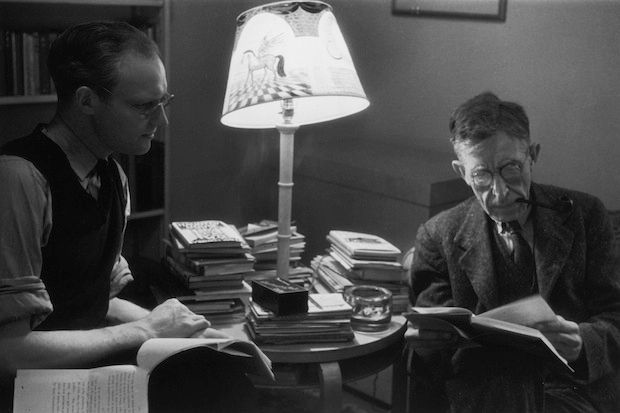Tucked away in the schedules, just before midday, just after midweek (on Thursday), just four lines in the Radio Times, was one of those radio gems. Nothing remarkable on the surface, but every so often sparkling with insight, or a different way of seeing. Woolf in the Jungle (produced by Dan Shepherd) took us to Sri Lanka (or rather Ceylon) in 1904 when a young Leonard Woolf arrived on the teardrop island, with his wire-haired terrier Charles, 70 volumes of Voltaire, and absolutely no political, business or legal experience. He had been sent out to work as an officer in the Ceylon Civil Service, and very soon was posted to Hambantota in the south-east of the island, which he governed, single-handedly, for three years before returning to England. As the assistant government agent, Woolf looked after 1,000 square miles of mostly impenetrable jungle and almost ten million people, adjudicating their disputes, collecting dues and overseeing the land.
So far, so typical of the colonial experiment. But Woolf was unusual, partly because of his Jewishness, which meant he never really fitted in, always felt like an outsider, didn’t want to sit around drinking gin-and-tonics after dark or spend his afternoons playing tennis at the club. He was also a talented linguist and very soon knew enough Singhalese to understand what the victims and witnesses who were brought before him were saying without an interpreter. His perspective therefore was necessarily different.
His job meant that he was permanently on the move touring his fiefdom, and he had little opportunity to socialise with his fellow colonists. Instead he became fascinated by the jungle, which crept down from the mountains towards the coast, ‘looking like a great sea, over which the pitiless hot wind perpetually sends waves unbroken, except where the bare rocks, rising above it, show like dark smudges against the grey-green of the leaves’. This is no lush, fruit-filled tropical rainforest but a tangle of thorns, evil-looking cacti and great leafless trees, dusty, windblown and scorched by the sun. Although the Singhalese he lived and worked among were mostly illiterate, often starving, crippled by debt and beset by superstition, greed and envy, Woolf came to admire their spirit, respecting their apprehensions and fears, their indomitable persistence in tilling soil that yielded such poor harvests, keeping the jungle at bay.
We know all this because, apart from writing both an official account of his work for the colonial government and a diary of his personal experiences, Woolf also published a novel based on his life in Sri Lanka. The Village in the Jungle is a remarkable book because it’s written entirely from the point of view of the Singhalese. There’s little mention of empire, or of its role in organising the lives of these people. It’s the jungle, not London, that is king. It’s also a celebration, or rather a tribute to the villagers whom Woolf had found himself living among, and an imaginative triumph, enabling us to see for ourselves the lives of others; an EastEnders, if you like, in its depiction of families under stress in the tight confines not of the inner city but the jungle territory of Sri Lanka.
Nicholas Rankin, who presented, gave us in just 30 minutes such a flavour of the novel (with readings by Jonathan Keeble) that it seems surprising it’s now so little known. Perhaps it’s because, 20 years before Orwell’s Burmese Days, it presents such a vividly different response to the imperial experiment. As Woolf was to say, ‘I liked the power [of a colonial official], and yet I got to think more and more it was a very bad thing. Bad for my character…and bad for their character.’
James O’Brien’s 19-minute interview with Nigel Farage of Ukip on LBC last week was probably the quickest and most devastating outing of Farage’s character you could hope to witness. LBC is not on iPlayer but you can watch it still on the web and I urge you to do so, both to get a measure of the man — as Farage relentlessly refuses to recognise that much of what he says is racist — and to see how effective an interviewer can be with an excellent brief and a calm, persistent intention.
O’Brien was not shy to use the full arsenal of his research and his verbal weaponry — that’s the advantage of not working for a BBC station. He had no need to be impartial. He was determined to expose Farage’s views on Romanians, illegal immigrants, foreign-language speakers on trains (Farage reportedly has said that he was troubled to find himself in a train carriage filled with people who were not speaking English). And expose him he did, not by hectoring, but by pinning Farage down with dates and times and the fact that Farage’s wife and children speak German (Farage just can’t see the absurdity of his position). It was warfare, and possibly not conducted on gentlemanly terms, but boy was it effective.





Comments